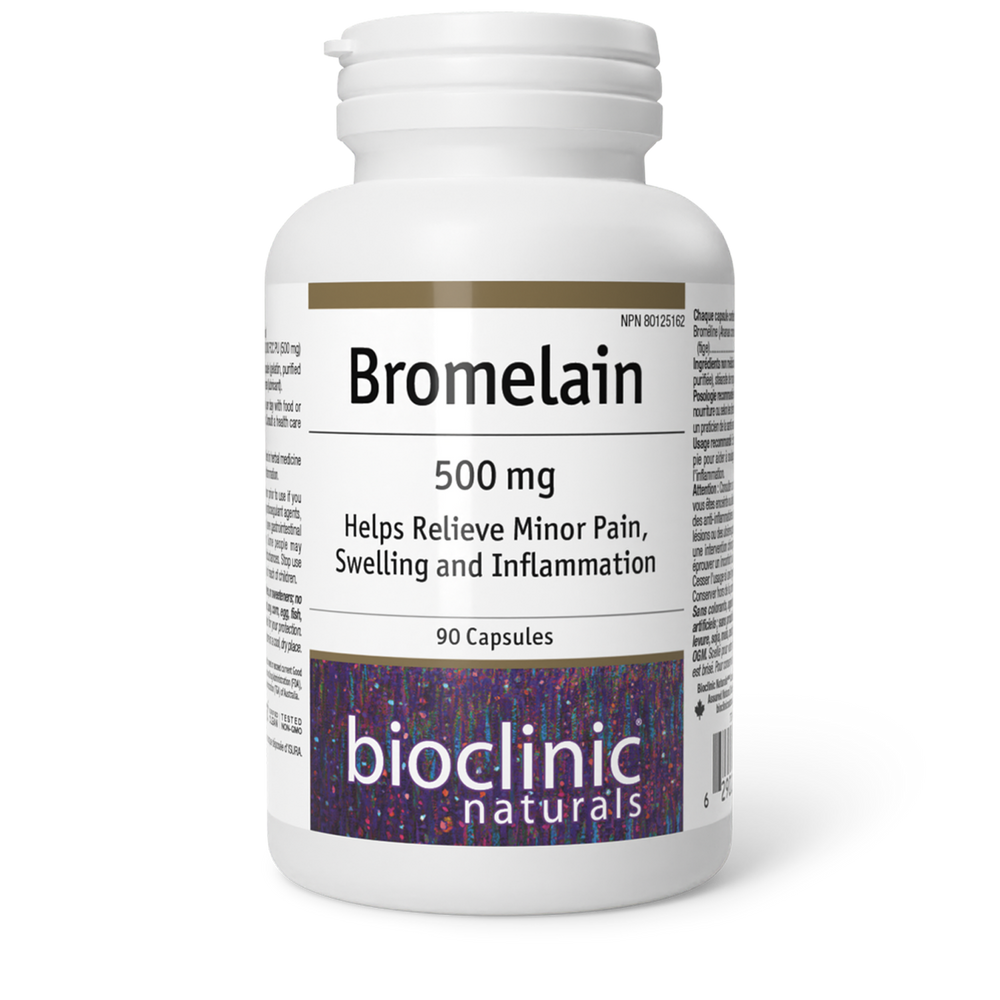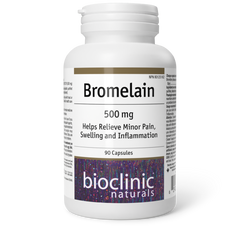

Bromelain
- 23.99$
0.00$- 23.99$
- Unit price
- per
Description
x- Helps relieve minor pain, swelling and inflammation
- Provides 500 mg of bromelain from pineapple stems per capsule
- Promotes healthy digestion by improving the breakdown of food proteins
- Provides the clinical dose used in controlled trials to support musculoskeletal health.
- Bromelain is well absorbed and retains its enzymatic activity, which gives it consistent anti-inflammatory effects.
Bromelain, found in pineapple stems, is a combination of several proteolytic enzymes classified as cysteine or thiol proteinases. Bromelain's long history as a digestive aid is partly attributed to its ability to digest proteins over a wide pH range. However, it has also been shown to stimulate pancreatic enzyme production and improve epithelial integrity in experimental models.1
In addition to its function as a digestive enzyme, bromelain is absorbed in the digestive tract and retains its enzymatic activity in the blood. Among its many enzymatic effects, bromelain has been shown to be a potent anti-inflammatory agent, reducing levels of inflammatory signals, such as tumor necrosis factor (TNF) and nuclear factor kappa B (NF-kappaB).
Bromelain's anti-inflammatory, fibrinolytic, and analgesic effects also account for many of its beneficial effects on the musculoskeletal system. In an open-label trial, bromelain supplementation was shown to reduce acute knee pain, stiffness, and function, with a dose-dependent effect. In another clinical trial of mild/moderate knee osteoarthritis, bromelain had similar efficacy to standard treatment after four weeks. Faster recovery and reduced pain and swelling following several types of minor trauma have also been reported with bromelain.
Produits recommandés
Produits récemment consultés
- Choosing a selection results in a full page refresh.


